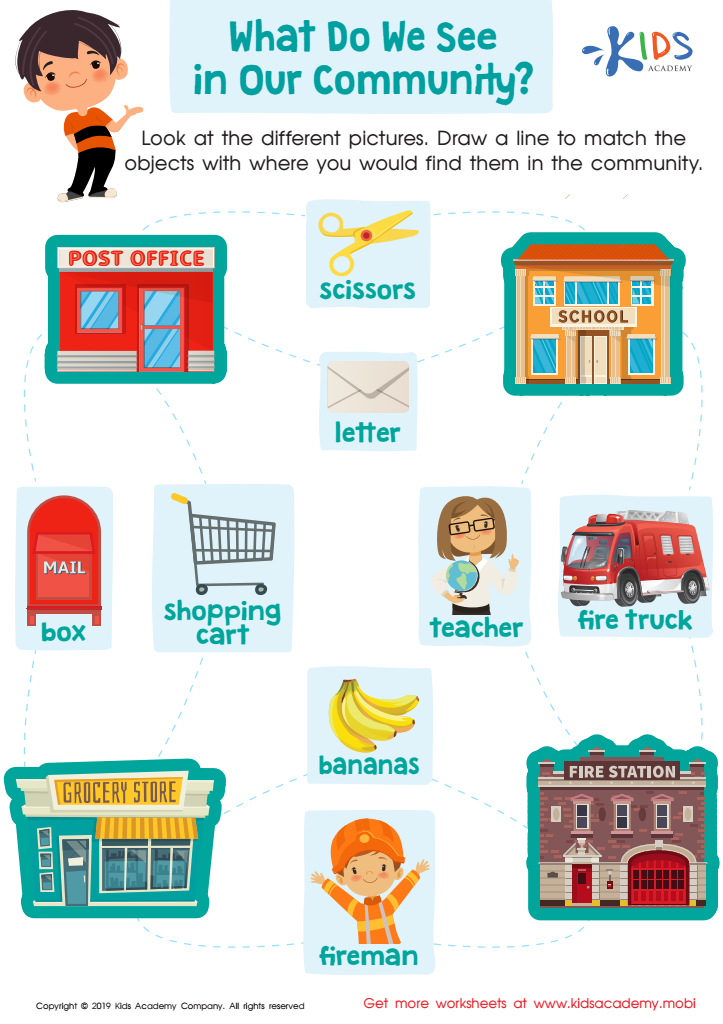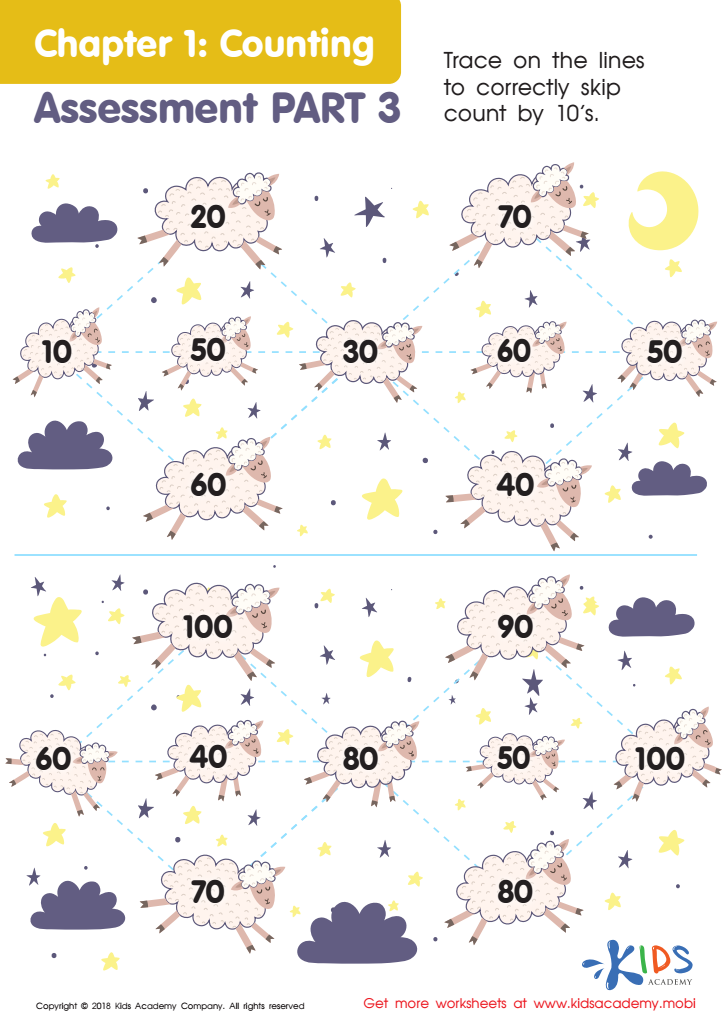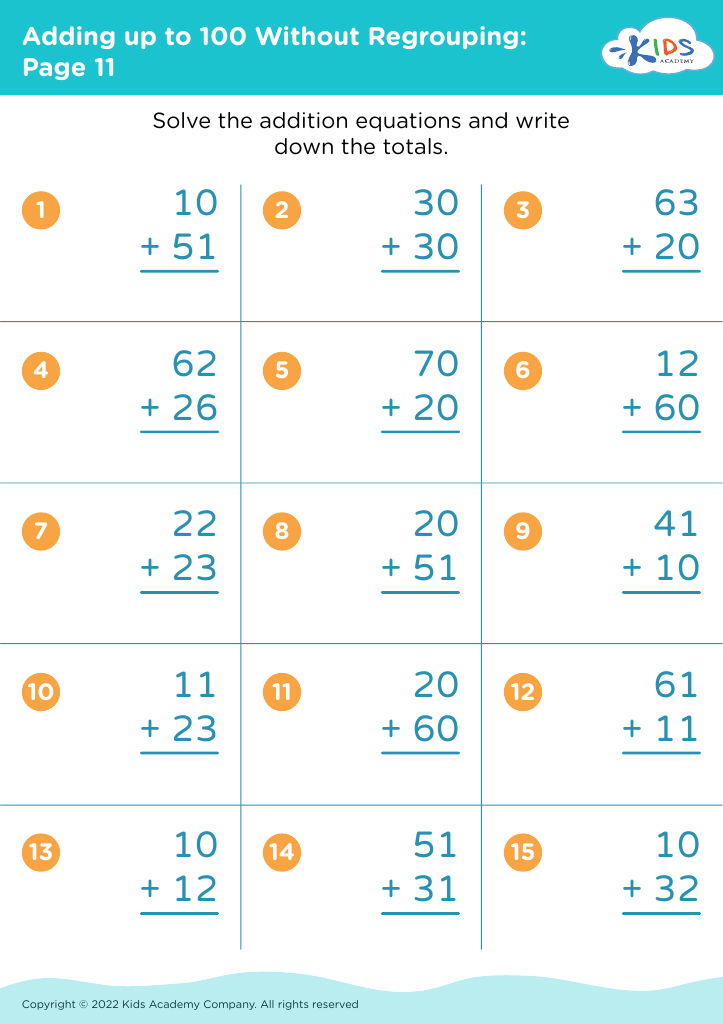Improving reading skills Math Worksheets for Ages 4-7
6 filtered results
-
From - To
Unlock the magic of reading with our engaging Math Worksheets for Ages 4-7! Designed to enhance both math and reading skills, our worksheets make learning fun and effective. These captivating activities serve a dual purpose, aiding in number recognition, counting, and basic arithmetic while simultaneously boosting reading comprehension and vocabulary development. Ideal for young learners, parents, and educators, our resources support early literacy and numeracy in a playful, interactive manner. Watch your child's confidence soar as they master foundational skills essential for future success. Explore our comprehensive collection today and inspire a lifelong love of learning!


What Do We See in our Community? Worksheet


Counting: Assessment 3 Worksheet
Improving reading and math skills for children aged 4-7 is foundational and sets the stage for lifelong learning. At this early age, children's brains are highly adaptable, making it a critical period for cognitive development. First, reading skills are essential as they are the cornerstone for learning across all subjects. When young children develop strong reading skills, they are better equipped to comprehend, decode, and analyze text, which aids in vocabulary development, critical thinking, and written expression. Early reading success boosts self-esteem, making children more enthusiastic about learning.
Math skills are equally important. Basic arithmetic fosters logical reasoning and problem-solving abilities. By grasping fundamental concepts like counting, addition, and subtraction, children develop a better understanding of patterns and relationships, which are pivotal in advanced math and science. Research shows that early math skills are strong predictors of later academic achievement.
Parents and teachers who prioritize these skills not only help children achieve academic success but also improve their ability to navigate everyday tasks. Balancing checkbooks, shopping, and even cooking all require a blend of reading and math skills. By nurturing these abilities early, we set the groundwork for competent, confident adults capable of lifelong learning and adaptability in an ever-changing world.



 Assign to My Students
Assign to My Students







.jpg)


.jpg)











